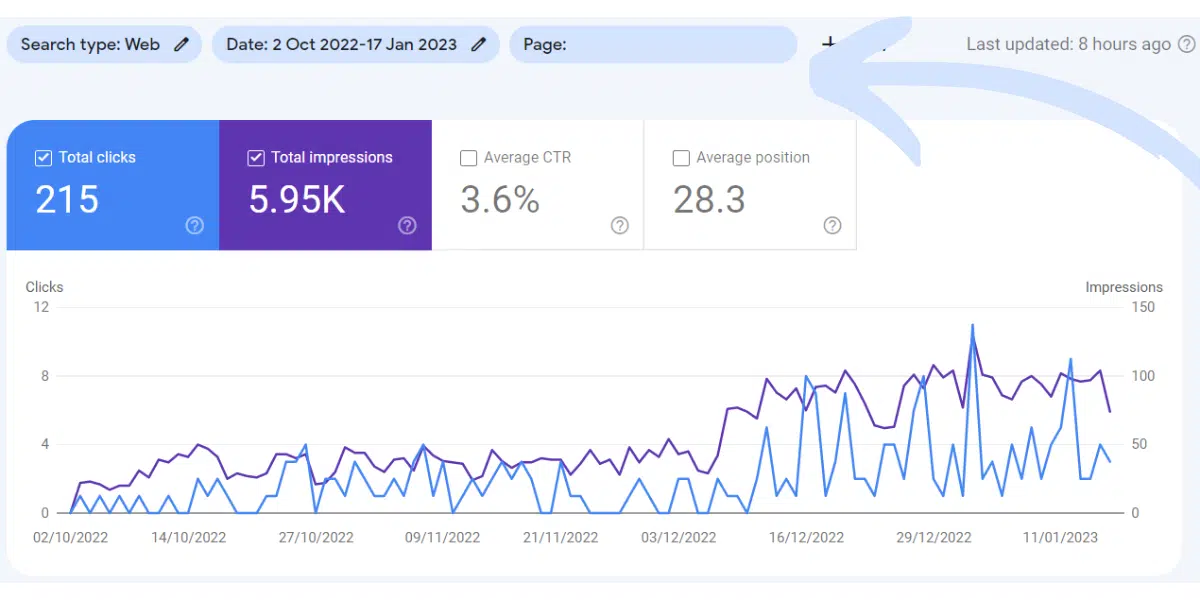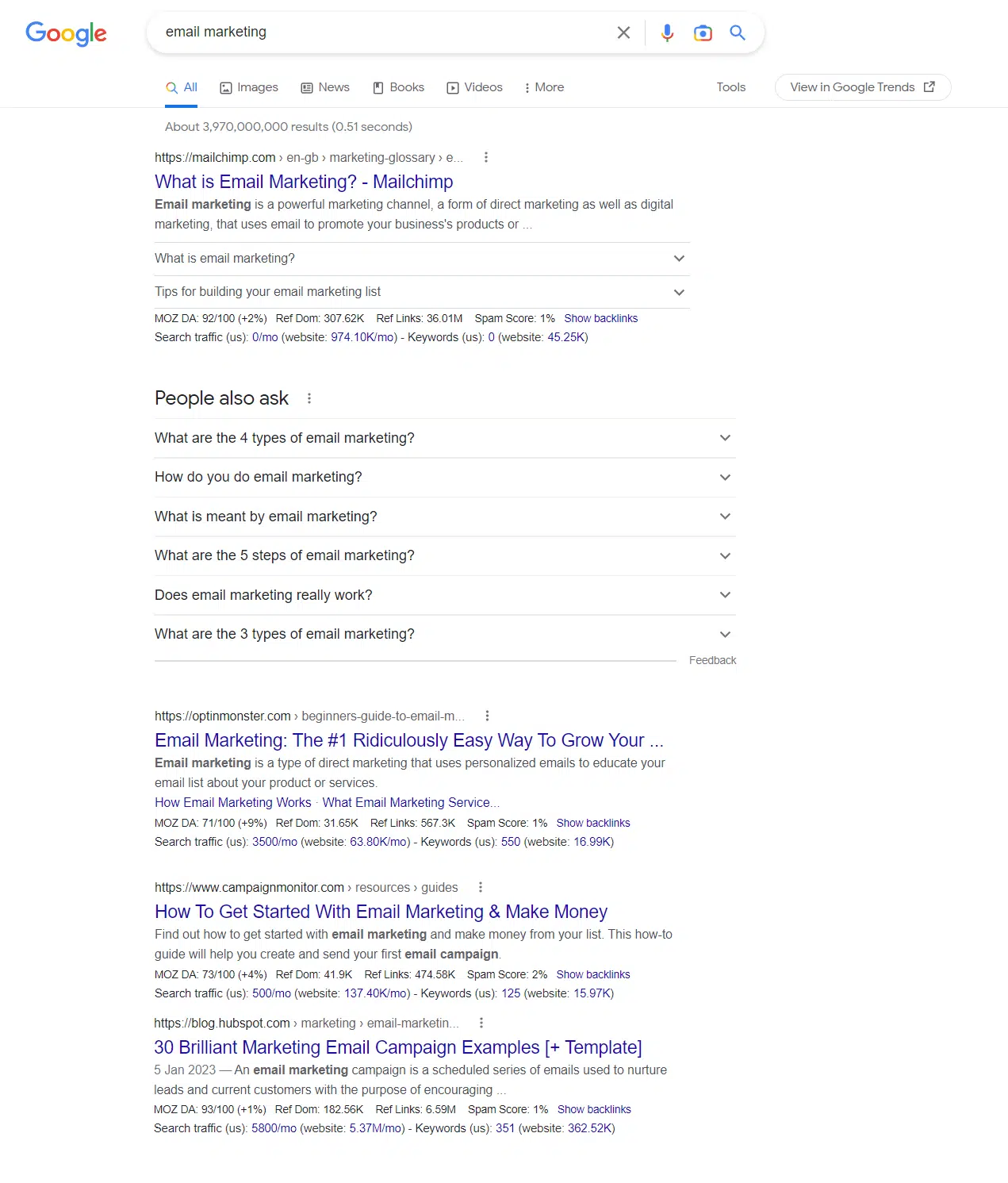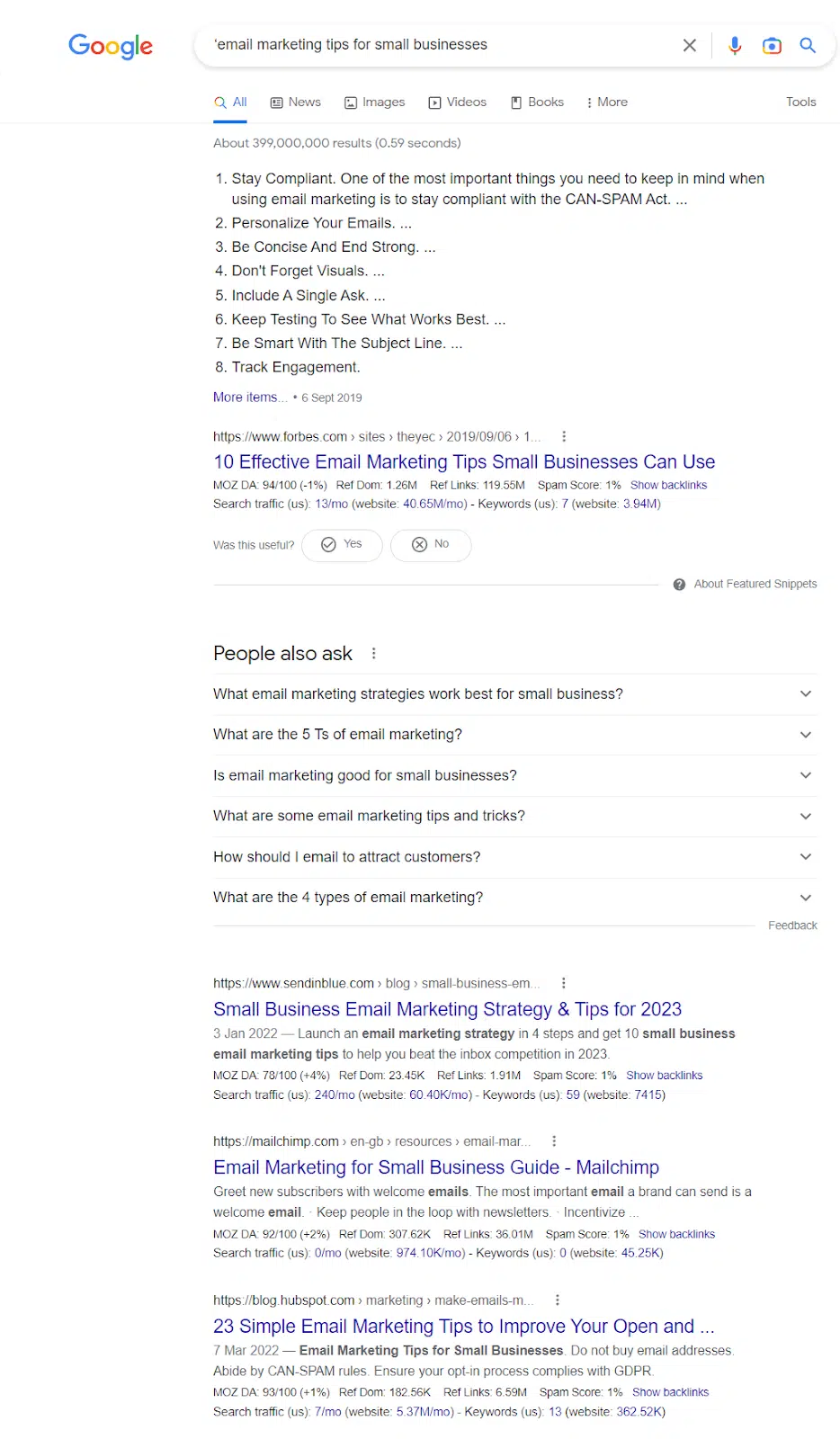Creating content is a demanding job. The creative process takes hours, and great content is wasted if people don’t find it. If you publish content online, you must do keyword research for SEO.
The challenge? The metrics SEOs traditionally use for keyword research – such as keyword difficulty scores and search volumes – are unreliable.
If all this is true, what should we do to research keywords effectively?
Let’s explore keyword research for SEO and the questions you must ask yourself to create content that will rank in SERPs.
Question 1: How does my audience search for my product/service?
If you want your content to be discovered by your audience then you need to use the words and phrases they’re searching for to find you.
The best way to discover how your customers use language around your product or service is to talk to them directly. Or, talk to the sales and customer service teams who have conversations with customers daily.
Question 2: What problems do your buyers need to solve?
Discovering how your customers talk about your product or service will inevitably take you to the problems they must solve. You can unearth a trove of content ideas by:
- Talking to your customers.
- Engaging with feedback forms.
- Checking reviews on your site and competitors’ sites.
- Reading sites like Quora and Reddit. Or digging through Google’s People also ask.
If your buyers are vocal about issues with products or services, you can bet they also search for solutions to these problems online. Use these pain points to create content that helps the user.
Question 3: What’s the search volume?
Search volume provides a guide on how many times a keyword is searched per month. These volumes are not accurate and the results vary between tools.
If you’ve done your homework and found answers to questions one and/or two but found your keywords return zero search volume, you should write your content.
You know this will help your audience, so why wouldn’t you write it?
Even if the content didn’t take it to the top of SERPs, you’ve got a piece of writing that can complement other marketing efforts such as email, social media, or even a piece of content sales can send out to prospective buyers.
Plus, low-volume keywords may surprise you.
The source of truth for the usefulness of any search term will unveil itself to you through your monitoring of tools like Google Search Console (GSC).
You can filter by page and see how many clicks and impressions a piece of content has received. Scroll down to find all the queries that returned your content.

There’s nothing wrong with starting your next piece of content from a keyword with search volume that you discovered via SEO tools. This strategy is also perfect for identifying customer needs.
Getting into the data and discovering what’s searched “in the real world” will give you better insights.
Question 4: How competitive is the keyword?
Keyword tools offer metrics to score how difficult a keyword is to rank for. Generally, their data is based on how many backlinks ranking articles have – many backlinks to a page equal higher difficulty scores.
The problem is that backlinks are just one factor in a highly complex algorithm.
A general rule is that head keywords (keywords with one or two words) will be harder to rank for than a longer-tail keyword (4+ words)
While I think it’s helpful to consider how competitive a keyword is, the better question to ask is what users want when they search for this keyword. What is the intent behind the search?
Get the daily newsletter search marketers rely on.
Question 5: What is the search intent?
Pairing an understanding of what your customers are searching for and what they’re looking for will take your SEO strategies to another level.
Let’s look at an example so you can use long-tail keywords and search intent to your advantage.
If you’re selling an email marketing tool, you might want to avoid the keyword “email marketing” in favor of a long-tail keyword like “email marketing tips for small businesses.”
You can identify a defined search intent using your brain. Email marketing is very broad. It’s unclear what someone wants. We can gather some data to support this by heading to Google, searching the keyword and seeing what’s returned.
With the billions of searches Google has for the term “email marketing,” the search intent is still not clear, so it provided an array of responses:
- What is email marketing?
- How to get started.
- Campaign examples.
Plus, related questions that people ask.

Google itself doesn’t know exactly what information to give the user.
The SERPs significantly change with a long-tail search like “email marketing tips for small businesses” as the search intent becomes clear.
You don’t need Google to understand who is searching for this and what they want. The searcher wants tips, listicles, guides and expert advice on how to get the most out of email marketing tips.
That said, it never hurts to look at SERPs before we write. Some keywords might surprise you. Plus, we know Google wants to provide the most helpful content, and they have tested the content that resonated with this type of search, so the hard work is done.
If you search your keyword and Google provides email tips in listicle form, write that. And write it better, more informatively than anyone else currently ranking.

Question 6: What else can I write on this topic?
When clients want to write on a specific topic, I usually say, “let’s do it!” I also tell them, “But let’s not write just one new piece of content. Let’s write three, five… even 20 or 100.”
Keyword research for SEO is never about one piece of content in isolation. We know this from Google’s E-E-A-T. You cannot showcase experience, expertise, authoritativeness and trustworthiness in one piece of content.
When you find a keyword – or a subject – that you feel you should write about, cover that topic fully, pulling in all of your expertise.
Using the email marketing example above, if you wrote “email marketing tips for small businesses,” then it might be wise to write other pieces of content around this, such as:
- How small businesses can use emails to get reviews
- Email subject lines to improve CTR
- The best (and affordable) email marketing tools for small business
Also, don’t forget to optimize your money pages, like “email marketing tool demo,” where users might subscribe to your offering.
Covering a topic comprehensively is vital for two reasons.
- It helps Google “see” that you’re a true authority on a subject. If you can write many good words covering all angles of a topic, it’s probably fair to say you know a lot about it.
- Your website user will find your blog infinitely useful. The more valuable the content, the longer your users will stay on your site discovering what you’ve got to offer.
Weave in your offering throughout the content you create, keep sharing the benefits and nurture your users to conversion.
Strategic keyword research drives SEO results
The six questions in this article are not an extensive list of what you need to ask to conduct a great SEO-driven content strategy. But answering them will help you strategically create content that resonates with searchers and drives results.
Opinions expressed in this article are those of the guest author and not necessarily Search Engine Land. Staff authors are listed here.
Related stories
New on Search Engine Land
https://searchengineland.com/keyword-research-for-seo-6-questions-you-must-ask-yourself-393823


